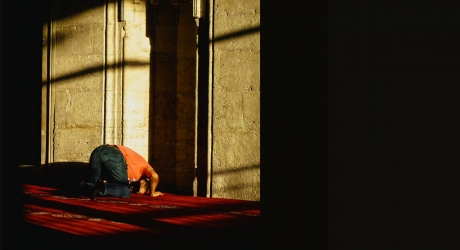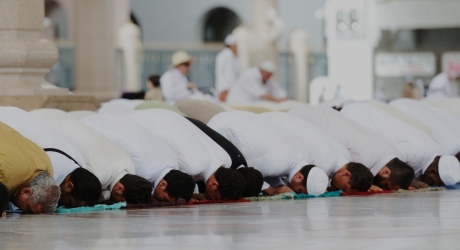Speaking Tree | August 8, 2013
When the Prophet of Islam sighted the new moon of Shawwal, he said: "O God, make this month for us a month of peace." This means that this month is meant for peaceful activities, and not only that, it is the beginning of a new peace culture that has to be continued throughout the year. Eid al-Fitr is one of the two major festivals of the Muslim tradition. It comes just after the end of Ramadan, that is, on Shawwal 1.
Ramadan is the month of the Quran when Muslims observe fast. But according to Islamic teaching, fasting is not only for the sake of fasting, it is for the sake of spiritual detachment. Abstaining from food is only a symbol. This practice symbolises the fact that Muslims must detach themselves from other activities and concentrate on the study of the Quran.
In fact, the practice of fasting has a greater purpose; that is, studying the Quran and finding the deeper meaning of the word of God. This practice enhances spirituality and makes the individual an intellectually developed person. In other words, the month of Ramadan is meant for the acquisition of divine wisdom from the Book of God to make one a more awakened person.
Eid al-Fitr is the festival of the breaking of the month-long fast. Breaking the fast in its extended sense is bringing to an end the secluded life that was required during the month of Ramadan. Eid in this sense means a new beginning. It means entering the external world and the promotion of social values.
According to ritual, Muslims start their morning on the first day of Shawwal by saying two units of payer. Then they begin what may be called spiritual socialisation. They exchange gifts, meet their neighbours and eat and drink together. These interactive activities continue the whole day.
What is the purpose of this interaction? The purpose is to share one's thoughts with others, to share the wisdom gained during Quranic studies with others, and to discuss these spiritual matters, to give others what is with you and to take from others what is with them. This is a high kind of activity.
These activities, or spiritual socialisation, are not meant to last just one day. Eid is just the beginning and this culture must be continued throughout the year only to renew it during the next Ramadan.
Observing Eid al-Fitr as merely a day of eating and drinking is a diminished form of Eid al-Fitr. It amounts to observing the form, while abandoning its true spirit. The above description of Eid is an ideal prescribed in the original texts. But in every religious community there are examples of degeneration and Muslims are not an exception.
Islam lays great stress on peaceful relationship among people and tries to promote the culture of peace in different ways - for example, saying 'May peace be upon you' at the time of greeting. Eid is also a part of this culture. When Muslims say two units of prayer in the morning, they say at the end, 'Peace be upon you, peace be upon you.' Thus they address the whole of humanity. After observing this practice, they go out and are required to follow this spirit in their broader interaction with others.
A historian of religion says that every religion begins as a universal ideology, but eventually gets reduced to a community culture. Let us, therefore, make this Eid a new beginning. Let it be a revival of the true spirit of Eid al-Fitr.









